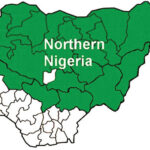
I have just returned from a week-long visit to Nigeria after a long hiatus. I was a guest of the NMA at its 58th annual conference which had our former Health Minister, Dr. Lambo, a very passionate advocate for healthcare as keynote speaker. The VP Osinbajo and Senate President Saraki a non-practicing physician were present but both left before the gripping keynote was given. I had opportunities to see a few of our health institutions, interact with health professionals and had multiple media studio interviews to share my experiences. Things have changed since I last worked in Nigeria. I heard stories of petty and unnecessary turf protection which are deleterious to patient care. Trade Unions are asking for redefinitions of established norms in the medical world and confusion reigns.
Our population is now estimated to be close to 200 million and more than half of these below the age of 65 years. A demographic time bomb. 1 in 10 Nigerian children below the age of five years die annually (2300 every day), the Maternal mortality rate of 814 per 100,000 live births by 2015 estimates making our neighbor, Ghana a sub-regional paradise for expectant mothers at 319/100,000. That figure is by the way 4/100,000 for Italy. Overall, life expectancy is 54 years in Nigeria and 62 years in Ghana. The parody cake of our missteps in health planning and delivery has as icing the Webometric ranking of Hospitals. That our top-ranked hospital was the Psychiatric Hospital in Aro (2091 position in the world and 6th best in Africa) says much of our mental state.
Beyond the perplexing healthcare indices are the continuing brain drain from Nigeria of qualified personnel seeking greener pastures or retirement. Nearly 45% of physicians registered with the Nigerian Medical Council have left the country and a large chunk of Nurses will be retiring within a decade with no experienced hands to replace them.
Ours remain a resource-challenged environment where access to primary health care or qualified primary care personnel remains a mirage and the next medical diagnosis is essentially a death sentence or financial ruin. Less than 5% of the population is enrolled in the NHIS, public hospitals are usually embroiled in some industrial action and are in any case grossly under-equipped, ill-staffed and poorly funded by all the tiers of government. The private landscape is littered with stand-alone one-man operations and poor referral system which means most needy people will resort to the spiritualists and charlatans for health care needs. I can continue to enumerate the extant issues in our healthcare but that will preclude space for solutions.
Quo Vadis?
If we truly accept the maxim that health is wealth, a resource-challenged nation such as ours should increase its efforts by doing the following:
1. As a matter of policy formulation and implementation, the NHIS should cover ALL Nigerians to avoid current loopholes. This will mean we have to invest more in the health sector, precisely in primary health care, the true base of modern health care. This can be financed through a mix of raising our already very low individual and corporate taxes, presently the lowest in Africa by 1-2% and VAT increases to be added to our chronically below 5% budgetary allocation to the health sector. We must not lose sight of the $2 billion yearly capital flight that we spend on health tourism which takes jobs, health, and skills of Nigerians to foreign shores while we maximize the impact of current spending.
2. We will need to tap into the tremendous experience and skills of the diaspora based Nigerian health professionals. There are in excess of 12,000 Nigerian Physicians practicing in Europe and North America aggregated in organizations like ours, Canadian Association of Nigerian Physicians and Dentists (CANPAD) as well as our sister organizations, ANPA, MANSAG. Nurses, Pharmacists, Physiotherapists too will be needed to revamp our health sector.
3. Secondary and Tertiary healthcare facilities and delivery can be supplemented by religious and private industry through the NHIS as long as they are compliant with guidelines set by and are within the oversight of the NHIS the body that will regulate remuneration to staff and institutions within the system.
4. Nigeria cannot continue to import medications and thus fritter away scarce foreign exchange. We have a population huge enough to promote local production of most of the drugs that we need as well as healthcare consumables. 200 million people must count for something.
5. Finally, the healthcare industry should be declared essential and legislation enacted to ban all strikes. The government, NHIS and staff unions within the system, however, must be bound to term contracts and grievances are addressed through binding arbitration to protect the rights of healthcare workers.
Nigerians have suffered for too long. I wish I could lock our Senate President in a room for a week to listen over and again, a thousand times to Professor Lambo’s keynote speech to the NMA in Abuja instead of the showboating blood pressure measurement pictures of him and Dino in newspapers. The time for action is now.
Adetola, is President Canadian Association of Nigerian Physicians and Dentists (CANPAD).
Asaju will be back next week.
 Join Daily Trust WhatsApp Community For Quick Access To News and Happenings Around You.
Join Daily Trust WhatsApp Community For Quick Access To News and Happenings Around You.


